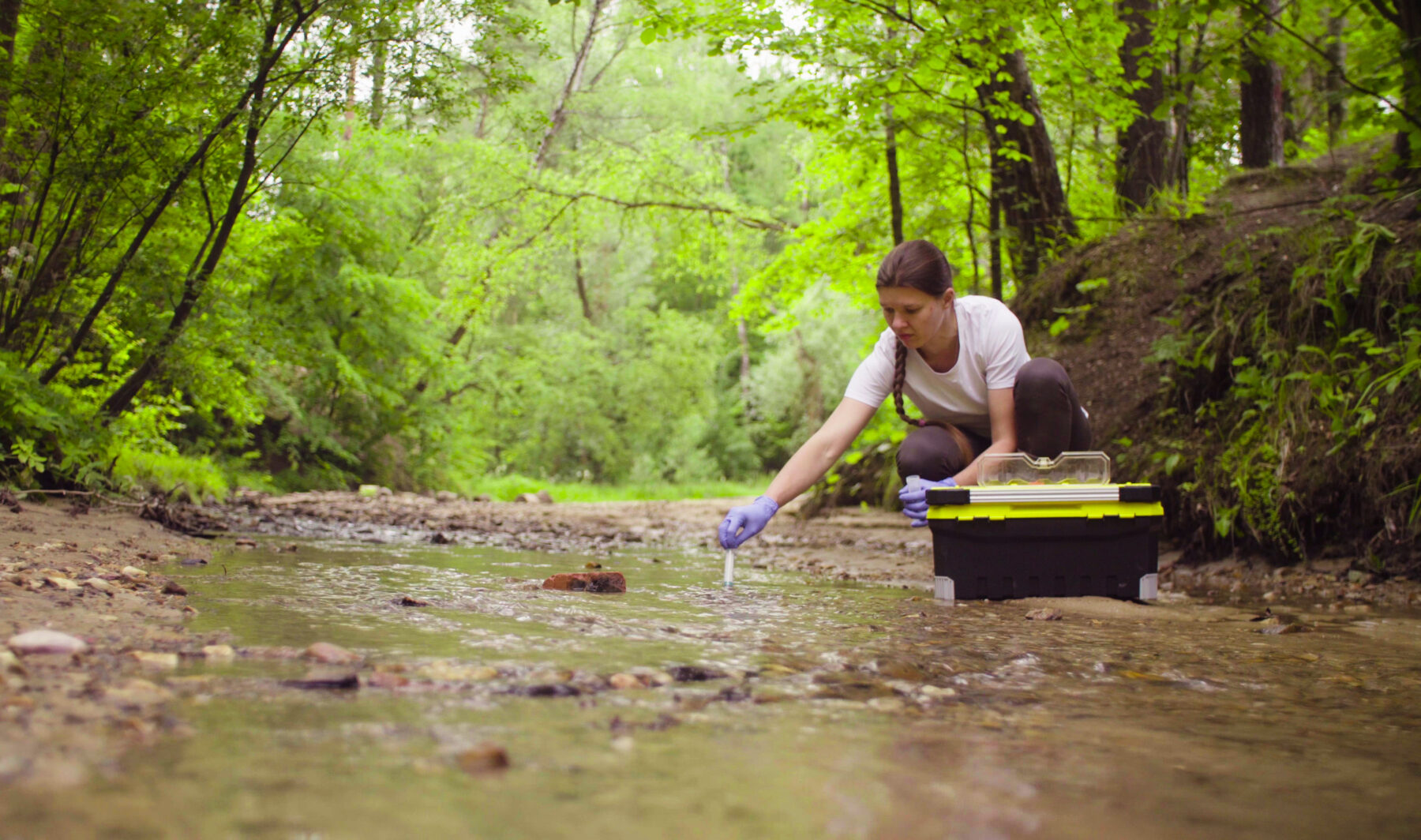The human-induced environmental changes require an in-depth understanding of the complex interactions between humans and nature. Environmental Science study provides this scientific foundation and an appreciation of the field’s interdisciplinary nature. By understanding and predicting the environmental challenges we face, we can create a more sustainable future.

Environmental Science
WHY STUDY ENVIRONMENTAL SCIENCE AT CHC?
In the backyard of CHC, runs the Wissahickon creek, a gem of the Philadelphia park system. Because of this proximity, nature field trips, classes, and on-campus activities arise often as we work together within our commuinity to build more responsible action toward a more sustainable Earth.
Addressing our environmental issues requires an interdisciplinary perspective. Chestnut Hill College science faculty members have expertise in critical sub-disciplines in Biology including Environmental Sciences, Organismal Biology, Cell Biology, Molecular Biology, Infectious Diseases, Recombinant DNA technology as well as Human Genome Research. This diverse set of disciplines prepares students to better understand and manage the environmental challenges we face.
In addition, the class sizes are usually small, affording individualized and close interaction with the faculty members of the Department. Along with classroom instruction by highly qualified and experienced professors, students receive a well-rounded liberal arts education. Students also may perform independent study during their junior or senior years under the direction of a department member, an established scientist, or a physician at a graduate school or major research center.
Major students who meet academic qualifications are encouraged to participate in the Biology Departmental Honors Program, which provides greater challenges.
Our students leave CHC for careers in the corporate, government, nonprofit sectors, and academia. CHC alumni also graduate from reputable graduate and pre-professional schools in Biology, Molecular Biology Medicine, Dentistry, Pharmacy, Veterinary Medicine, Optometry, Nursing, and Emergency Medicine. Recent students have earned M.S., M.D., V.M.D., and Ph.D. degrees at several of the nation’s top universities.
Possible jobs include:
- Environmental consultant
- Environmental educator
- Agricultural scientist
- Wildlife managers
- Air/water pollution analyst
- Natural resource manager
Internships:
Our programs provide majors with diverse opportunities to integrate rigorous academic study with practical experience. Internships or Independent Studies place students under the direction of a department member or qualified scientist/mentor or physician at external graduate/medical schools and major research centers. In fact, it’s not uncommon for an internship to lead to full-time employment after graduation.
Recent student internships, honors, and independent research projects were performed at:
- Schuylkill Center for Environmental Education
- Temple University School of Medicine
- Thomas Jefferson University
- University of Pennsylvania
- Cephalon Inc. of West Chester
- Fox Chase Cancer Center
-

Lakshmi Atchison, Ph.D.
Professor Emerita of Biology
- Program(s):Biochemistry
- latchiso@chc.edu
-

Kathleen Duffy, SSJ, Ph.D.
Professor Emerita of Physics
-

Joshua D. Fetterman, Ph.D.
Chair, Center for Natural and Behavioral Sciences
Associate Professor of Psychology -

Joseph Kulkosky, Ph.D.
Chair, Biology Professor of Biology
-

Robert Meyer, Ph.D.
Professor Emeritus of Biology
-
Hilton Oyamaguchi, Ph.D.
Assistant Professor of Biology
-
Dawn Schramm, M.S.
Instructor of Health and Exercise Science
-

Kenneth J. Soprano, Ph.D.
Professor Emeritus of Biology
-
Elliott Tammaro, Ph.D
Assistant Professor of Physics
-
Hannah Venit, Ph.D.
Assistant Professor, Biology
-

Jennifer Wade, Ph.D.
Assistant Professor of Psychology
Director, Departmental Honors- Program(s):Psychology
- 215-248-7174
- wadej@chc.edu
